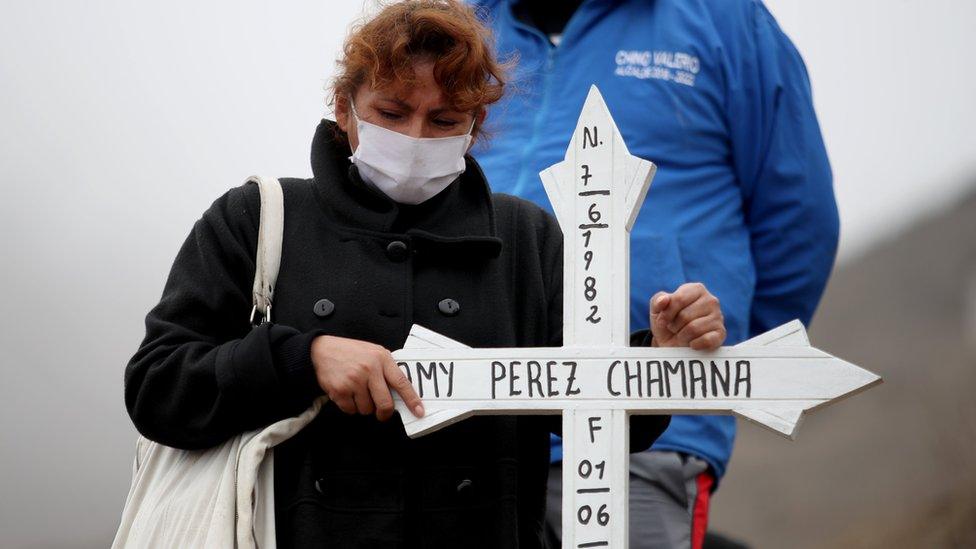Francisco Sagasti sworn in as interim Peruvian leader
- Published
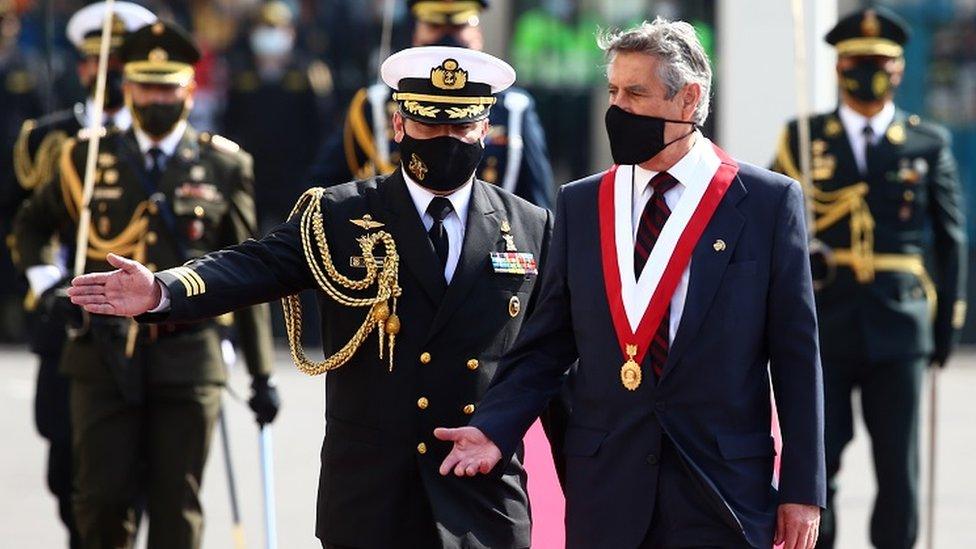
Francisco Sagasti (right) will act as an interim president ahead of next year's general election
Francisco Sagasti has been sworn in as Peru's new interim president - the country's third head of state in under a week.
The 76-year-old engineer and academic will lead Peru until the presidential election next year.
Last week, President Martín Vizcarra was impeached over bribery allegations, which he denies - a move that sparked protests across the country.
At least two people were killed and many were injured in the protests.
Peru has seen days of protests
President Sagasti was elected leader after securing the minimum 60 votes required. He belongs to the only party that voted against the impeachment of Mr Vizcarra last week.
In an address to Congress, President Sagasti asked for "forgiveness on behalf of the state" from the families of those killed during demonstrations.
"We cannot bring these young people back to life," he added. "It is absolutely necessary to remain calm, but do not confuse this with passivity, conformity, or resignation".
What's been happening in Peru?
Mr Sagasti has taken over from Manuel Merino, the former speaker of Congress who became interim president following the impeachment of Mr Vizcarra.
Mr Merino had been in the post for less than a week when protesters and politicians called for his resignation following a violent crackdown on demonstrations against him.
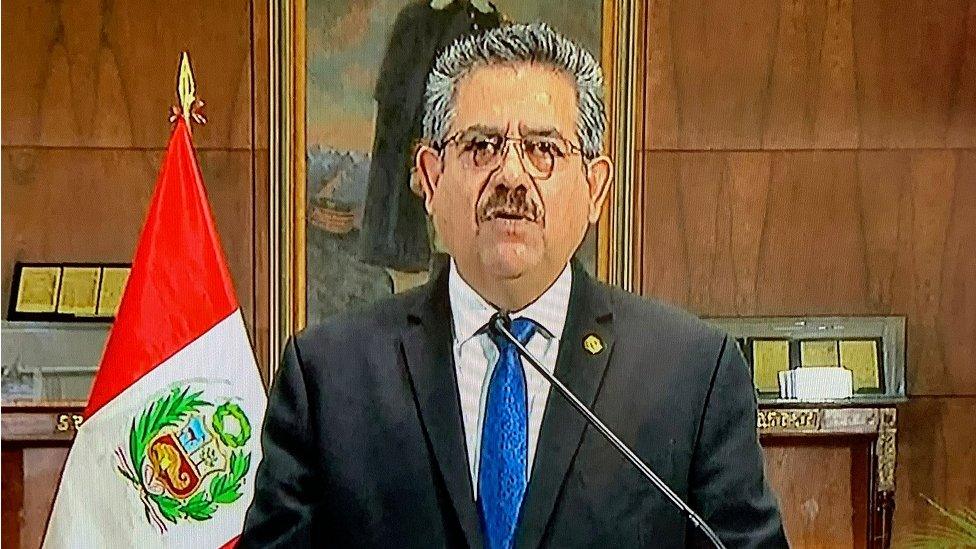
Mr Merino announced his resignation in a televised address on Sunday
Tens of thousands of demonstrators - many of them young - took part in protests against Mr Vizcarra's removal from office.
While some were there to support Mr Vizcarra and his reform agenda, others said they were fed up with members of Congress and what they described as the "parliamentary coup" it staged in the middle of the coronavirus pandemic and an economic downturn.
Peru has so far reported nearly 935,000 infections and more than 35,000 deaths, according to Johns Hopkins University - making it the country with the third highest rate of deaths per 100,000 people in the world. , external
The violence used by police to disperse the protests further fuelled anger against Mr Merino.
Twelve ministers from his newly appointed cabinet resigned on Sunday in protest against police brutality and his handling of the crisis.
What next?
Mr Sagasti has said his main task will be to ensure that general elections scheduled for April 2021 go ahead as planned.
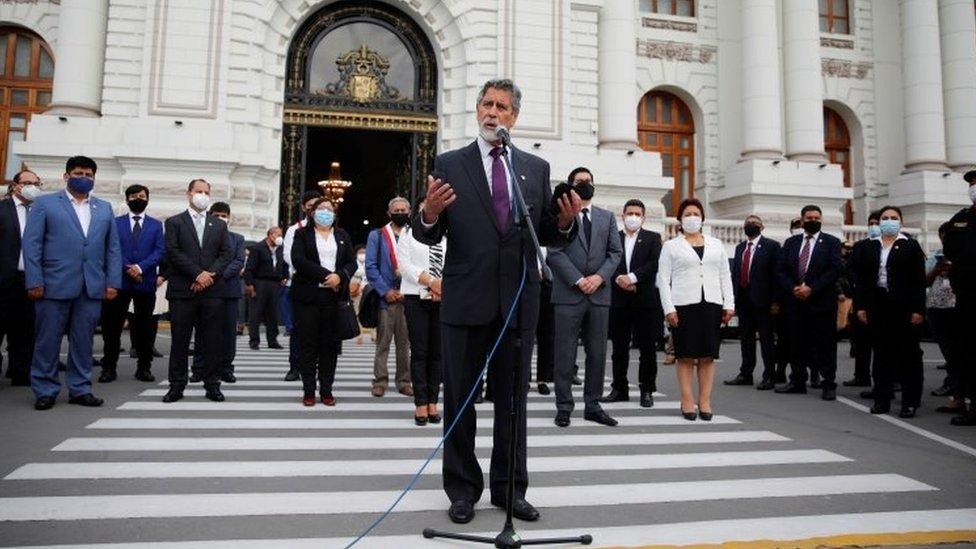
Francisco Sagasti struck a conciliatory note
He struck a conciliatory note in his first interviews, saying that he would lead an inclusive cabinet which could continue to fight against corruption.
He visited some of the protesters who were injured in clashes with the police in hospital and paid tribute to the two students who were killed.
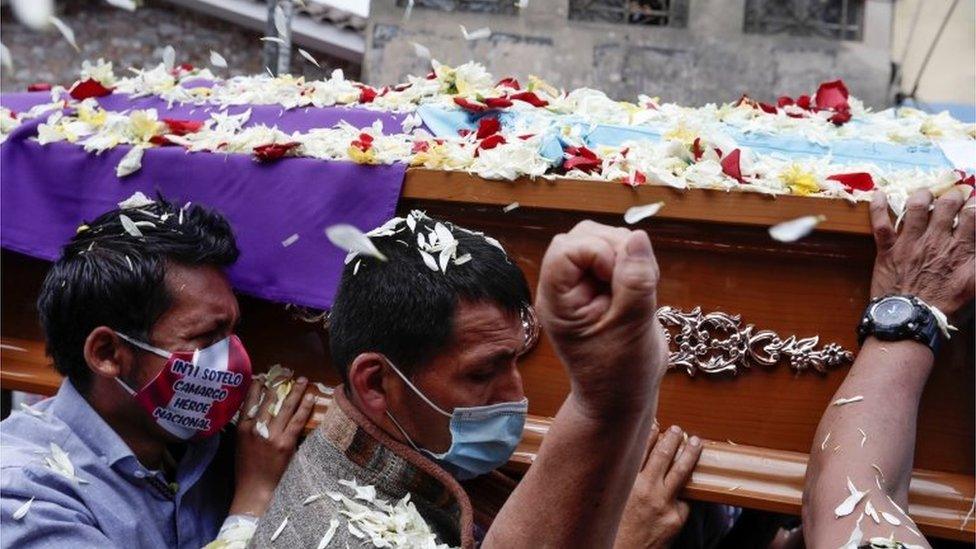
Inti Sotelo, one of the students killed in the protests, was buried on Monday
"Today is not a day of celebration because we have seen the death of two young people," he said. "We cannot bring them back to life but from the Congress and the executive we can take actions so that this does not happen again," he added.
- Published15 November 2020
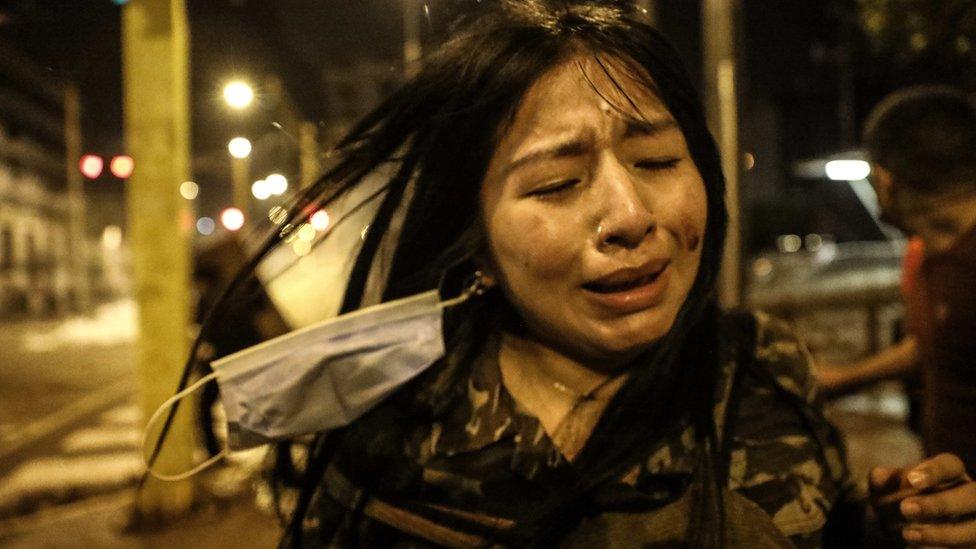
- Published2 November 2020
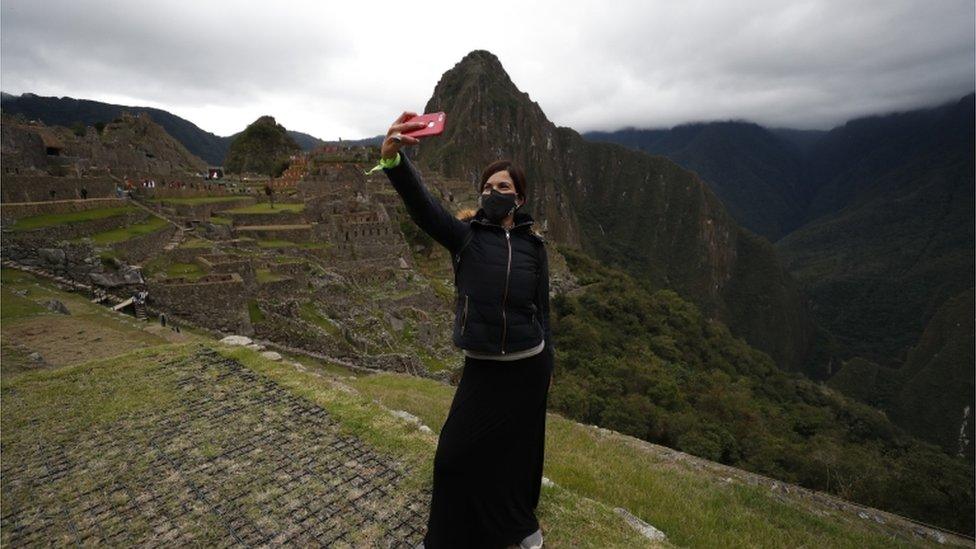
- Published1 June 2021
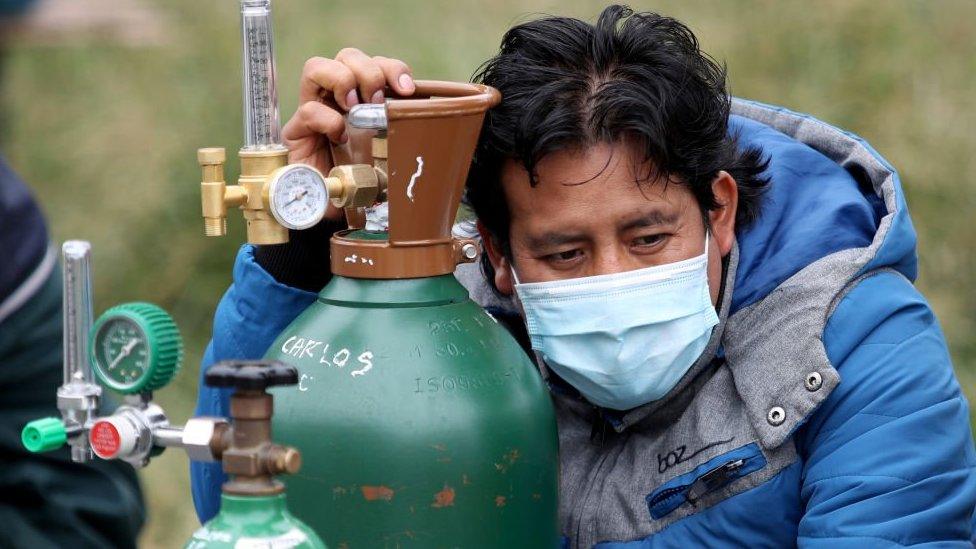
- Published16 June 2020
